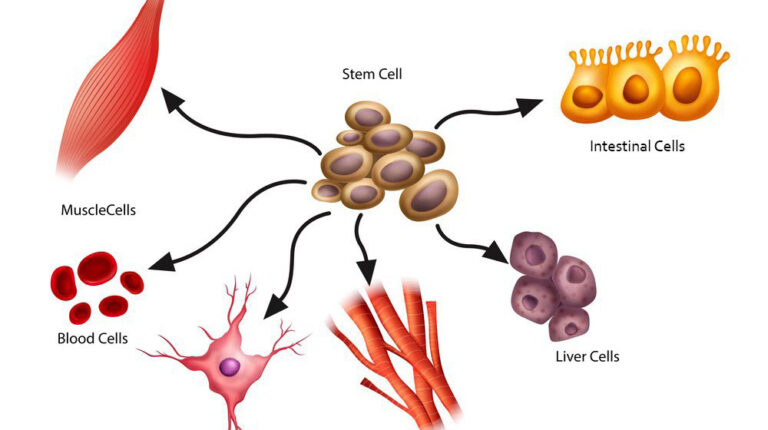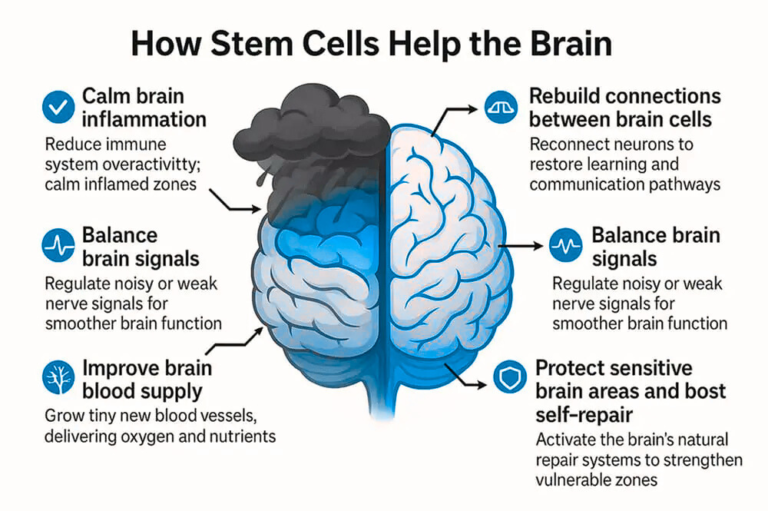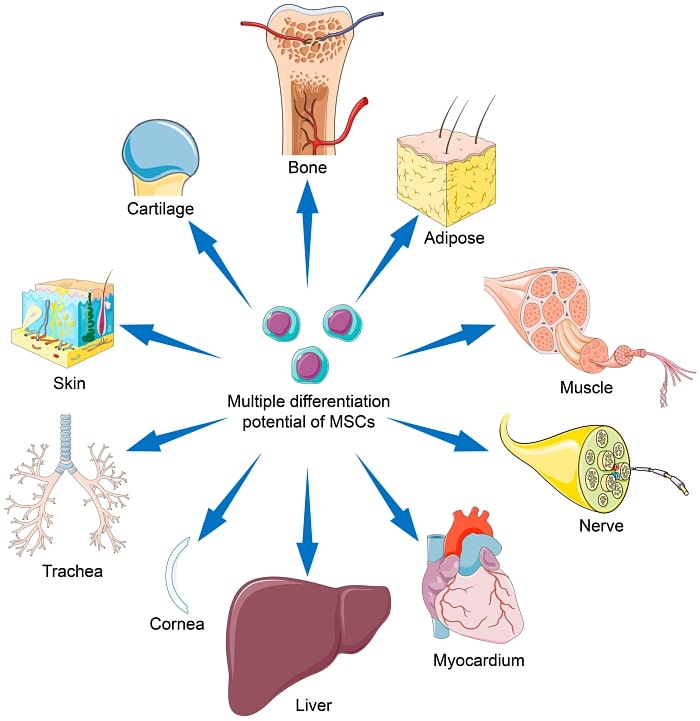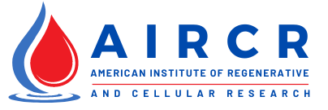What Are Stem Cells And Why Do They Matter?
Think of stem cells like raw materials or building blocks in the body. They are special because they can:
- Self-renew: They make more of themselves.
- Differentiate: They become different types of cells (e.g., skin cells, bone cells, etc.).
Regenerative medicine is the field of medicine that aims to use stem cells (and similar tools) to repair, replace, or regenerate human tissues and organs that are damaged by disease or injury. Instead of just treating symptoms, regenerative medicine aims to restore normal function.

How Stem Cell Therapies Go from Idea to Helping Humans ?
Turning a stem cell idea (in a lab) into something that actually helps people involves several big steps:
Idea and planning : First, a researcher picks a disease or problem and figures out how stem cells might help. They try to understand what causes the disease at a cellular/molecular level.
Pre-clinical work : Before trying anything in humans, scientists do two things:
- In vitro: in a dish, with cells.
- In vivo: in living organisms (often animals).
- They test safety, dosage, and how to deliver the cells, as well as whether there are any harmful effects, among other things.

Mesenchymal Stem Cells (MSCs): What They Are, What They Can Do ?
Of all the stem cell types, MSCs are among the most exciting for current treatments. Here are the key things to know:
What are MSCs?
- They are adult stem cells, not embryonic ones.
- They are found in many tissues, such as bone marrow, fat (adipose tissue), umbilical cord, placenta, and more.
- Under the right lab conditions, they can turn into things like bone cells, cartilage cells, fat cells, perhaps nerve or muscle cells in some cases.
What makes them special/useful ?
Immunomodulation & anti-inflammation: MSCs can calm down overactive immune responses. That means they can help with diseases where inflammation or immune attack is a problem.
- Paracrine effects: MSCs often help not by becoming new tissue themselves, but by secreting (releasing) factors (proteins, signals) that encourage nearby cells to repair damage, recruit other helpful cells, or grow new blood vessels (angiogenesis).
- Low risk: Compared to embryonic stem cells or induced pluripotent stem cells (iPSCs), MSCs tend to carry fewer risks, like tumor formation. Also, using a person’s own MSCs (autologous MSCs) reduces the risk of rejection.

Stem Cells, Mesenchymal Stem Cells, and Hope for Autism Spectrum Disorder
When we hear the term stem cells, many people imagine science fiction: tiny seeds of life that can grow into anything. The truth is less dramatic but no less fascinating. Stem cells are the body’s raw material. Unlike ordinary cells, they can not only make more of themselves but also transform into different kinds of cells. This power makes them an incredible tool in medicine. Doctors and researchers hope stem cells may help us repair organs, treat chronic diseases, and even bring relief to children with conditions like autism spectrum disorder (ASD).
Mesenchymal Stem Cells: The Stars of Regenerative Medicine
Mesenchymal stem cells (MSCs) have received special attention among the many types of stem cells. These are adult stem cells that can be found in bone marrow, fat tissue, umbilical cords, and even the placenta. They don’t usually become every kind of cell in the body, but they can form bone, cartilage, fat, and connective tissue. More importantly, they have unique properties that make them powerful healers:
- They can calm the immune system, which is useful in conditions where the body overreacts or attacks itself.
- They release healing signals that help tissues repair themselves and encourage new blood vessel growth.
- They are considered safe, with fewer risks of forming tumors compared to other stem cell types.
- Because of these qualities, MSCs are being studied in hundreds of clinical trials around the world.
Autism Spectrum Disorder and the Challenge of Treatment
ASD is a developmental condition that affects communication, social interaction, and behavior. It is not a single disease but a spectrum, meaning symptoms vary widely from person to person. Some children may struggle with speech, others with repetitive behaviors, and others with sensory sensitivities.
Current treatments focus on behavioral therapy, educational support, and sometimes medication for related symptoms like anxiety or hyperactivity. These approaches help, but they do not address the root biological changes in the brain and immune system that may play a role in autism. This is where stem cells, especially MSCs, have sparked hope.
Why MSCs Could Help in Autism ?
Scientists have noticed that children with ASD often have signs of chronic inflammation and an immune system imbalance. They may also show differences in how brain cells connect and communicate. MSCs seem promising here because they:
- It reduces inflammation: MSCs can quiet down an overactive immune system, which may improve brain function.
- It supports brain repair: By releasing growth factors, MSCs may help restore healthy connections between brain cells.
- It improves blood flow and oxygen: Some studies suggest MSCs improve microcirculation, which may benefit brain development.
What Research Shows So Far ?
Several clinical studies have tested MSCs in children with autism. While results are still early, many parents reported improvements in language, social interaction, and reduced irritability. Some studies also showed better scores on standardized autism assessments.
Why Mesenchymal Stem Cells Are the Best Choice for Regenerative Medicine ?
Stem cells are changing the way we think about healing. Among all types of stem cells, mesenchymal stem cells (MSCs) stand out as the safest, most effective, and most practical option for many conditions.
Here’s why MSCs are often called the “gold standard” in regenerative medicine:
- Natural Source: MSCs come from bone marrow, fat tissue, placenta, or umbilical cord. No ethical concerns, no controversy.
- Immunomodulation Power: They calm an overactive immune system, making them excellent for inflammatory and autoimmune diseases.
- Anti-Inflammatory Effects: They reduce harmful inflammation in tissues and organs, which is critical in chronic conditions.
- Tissue Repair Signals: Instead of just replacing cells, MSCs release growth factors and healing signals that stimulate the body’s own repair systems.
- Wide Availability: MSCs are easier to isolate and grow compared to other stem cell types.
- Safety Profile: Unlike embryonic stem cells, MSCs have minimal risk of forming tumors or uncontrolled growth.
- Compatibility: They can be used from your own body (autologous) or carefully matched donors, with low risk of rejection.
- Versatility: They can turn into bone, cartilage, fat, and support nerve, liver, lung, and heart healing through their secreted factors.
- Proven in Clinical Trials: Thousands of registered clinical studies are testing MSCs for conditions like autism, arthritis, heart disease, and liver failure.
- Future Potential: Researchers are now developing MSC-based therapies using exosomes (tiny healing particles they release), which could revolutionize non-invasive treatments.
In short, MSCs are not just another scientific idea: they are the most practical, safest, and widely studied stem cell therapy available today.
10 Reasons You Should Choose Us
When it comes to stem cell therapy, the science matters but so does the team you trust. Here’s why patients and families choose our clinic/program:
- Expert Medical Team: Our doctors are trained in both modern medicine and advanced regenerative therapies.
- Personalized Care: Every treatment plan is customized to your health needs, not a one-size-fits-all protocol.
- Safe and Ethical: We only use ethically sourced, high-quality mesenchymal stem cells that meet international standards.
- Global Standards: Our methods follow strict FDA/EMA guidelines for stem cell research and therapy.
- Proven Experience: Years of successful treatments with positive outcomes in conditions like autism, arthritis, and chronic inflammation.
- Advanced Laboratory Support: Our MSCs are processed in certified labs with the highest quality control.
- Holistic Healing: We combine regenerative medicine with nutrition, lifestyle, and functional medicine for long-term health.
- Transparency: No false promises, no “miracle cure” claims, just honest science and compassionate care.
- Ongoing Support: We guide you before, during, and after therapy, making sure you are never alone in your journey.
- Commitment to Innovation: We stay at the cutting edge of research, ensuring our patients get access to the latest safe and effective stem cell therapies.
At last, Mesenchymal stem cells are leading the way in regenerative medicine, and with the right team, they can unlock real healing potential. Choosing us means choosing science, safety, and compassionate care you can trust.
